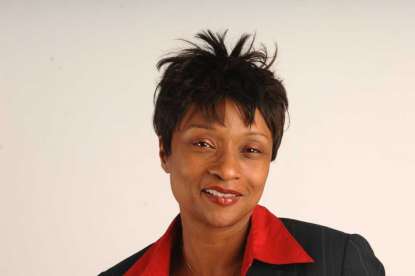Tonyaa Weathersbee: Various forms of Islam revealed in Turkey

Date posted: December 26, 2015
Two years ago, I traveled to Turkey with the Istanbul Cultural Center. Now Atlantic Institute, it tries to expose Americans to Turkish culture.
I spent time in Istanbul, walking through its parks blooming with roses the size of oranges. I toured the Hagia Sophia, a marble and stone mosaic wonder that was a church, then a mosque, before it became the third-most visited museum in the world.
I took my first balloon ride over the stone formations of Goreme in Cappadocia, prayed at the House of the Virgin Mary in Ephesus and muddied my hand with clay at a potter’s wheel at a ceramics house.
A huge part of Turkey’s culture, however, is Islam. So naturally, many Turkish people went to mosque at midday. Others went at other times. Some women wore hijabs and long dresses with long sleeves. Others wore hijabs with short dresses or pantsuits or jeans. Some didn’t wear hijabs at all.
LESSONS LEARNED
Seeing that, however, didn’t tell me anything new about Muslims as much as it verified what instincts and common sense told me: That just as Christians in America practice varying degrees of Christianity, Muslims in other countries practice varying degrees of Islam.
By extension, it means that Christianity has its extremists, such as the Christian Identity Movement, which espouses racist and anti-Semitic views, and Islam has its extremists, such as ISIL, which believes in enforcing a fundamentalist form of Islam.
So it is profoundly troubling that here in the U.S., an element of our population, whipped into a frenzy of anti-Islamic fear by GOP presidential frontrunner Donald Trump, actually are open to the idea of all Muslims being placed under surveillance and entered into a database solely because of their religion.
It is an idea that repels Alex Sivar, director of the Atlantic Institute and a board member of OneJax.
“If someone had come up to me 20 or 30 years ago and said that someone was going to be running for president with all these bizarre ideas, I wouldn’t have believed it,” Sivar told me.
“It’s sad, because it’s putting us back in the 1950s and the 1960s … my fear is that this kind of rhetoric can do us great harm.”
STEREOTYPES DON’T HELP
Yet, Sivar said, countering stereotypes about Islam is what the Atlantic Institute tries to do through the cultural experiences it offers — such as inviting non-Muslims like me to Ramadan feasts.
“We want to make sure that our neighbors understand our culture,” he said. “As a Muslim-American, I have to show my neighbors that I am a human contact and that ISIL doesn’t represent me.”
That’s admirable. But I hate that Sivar and other Muslims are now compelled to respond to stereotypes in order to protect their own safety and freedom in this land of the free.
I hate that some people are actually buying into the idea that all Muslims are capable of beheading people and blowing up buildings. A recent Washington Post poll showed that 59 percent of GOP voters believe that all Muslims should be banned from entering the U.S.
That’s like saying that all Christians are capable of doing what Eric Rudolph, who grew up in the Christian Identity movement, did: He planted bombs at the 1996 Atlanta Olympics and at two abortion clinics and a gay nightclub.
Two people died in those bombings, while 12 others were injured.
The good thing is that most polls show that Americans, for the most part, get this; that no religion should be characterized by its extremists. But it is troubling that so many others don’t.
And worse, are not trying to.
Source: Jacksonville , December 24, 2015
Tags: North America | Peacebuilding | USA |
























